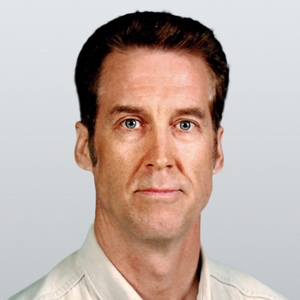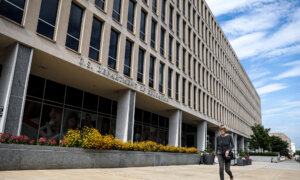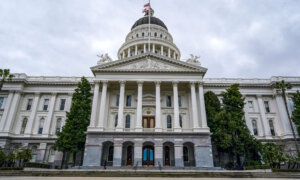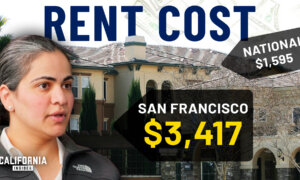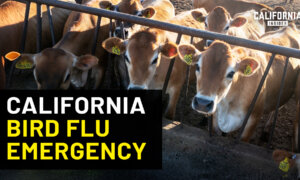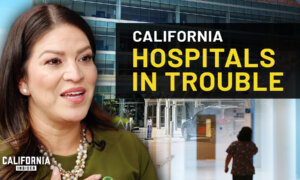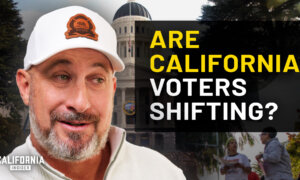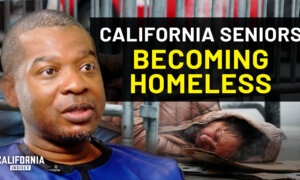Commentary
During this highly divisive post-election season, it might help to reflect on the purpose and role of government.
In modern times, it seems as if campaign seasons go on and on for months and start up again almost as soon as politicians are elected into office. Is this what our founders envisioned? In bygone days, campaigning lasted a few short days or weeks, just as it currently does in many countries.
What role should the government play in a democratic republic such as America? This has been a contentious issue since America’s founding, although most of the Founders came to a hard-fought consensus on this critical issue as revealed in the founding documents.
Our Founders laid out in the Constitution the duties of the federal and state levels of governance, along with the responsibilities and rights of the people. There are times when the separation of powers brings about controversy and various legal interpretations, while, at other times, distinct powers work well to hold excessive power by any single entity in check.
As we know, the executive branch is tasked with enforcing the law, the justice system interprets laws and renders opinions, and legislative bodies create new laws. This “checks and balances” system works effectively as long as each body refrains from grabbing too much power.
However, governmental bodies have grown larger and more cumbersome as the population of the nation has increased. Indeed, both the federal and many state governments have become bloated as they have assumed roles that the Founders never envisioned.
For example, the Founders believed that the role of government ought to be limited to defending civil liberties, handling foreign relations, maintaining a common defense, and the regulation of commerce. A treasury was needed to fund these core duties. End of story. Full stop. Period.
The Founders also encouraged the concept of self-governance, which would render unnecessary the growth of government bodies. Limited government was their watchword, because government dependency was frowned upon. Of course, over the years, that attitude has drastically shifted in some quarters as government has expanded to an unprecedented level.
Most politicians in the early years of the republic didn’t turn politics into a career. Most served a few years in executive or legislative positions and then returned to private life. Far too many politicians since the 20th century have turned politics into a profession. This can lead to endless campaigning, conflicts of interest, and the corruption of big money and power. Consequently, politicians can lose touch with the genuine concerns of the people and the national interest if they remain in government for decades.
America’s Founders would be appalled at the colossal national debt and persistent deficit spending by the government. A healthy governing system would spend only as much or less than it takes in through taxation. Expenditures should not exceed revenues except, of course, in rare instances of national or regional crises. Yet politicians today hardly think twice about spending far beyond what is budgeted on an annual basis regardless of the long-term consequences for future generations of taxpayers.
Why is the federal government involved in education? President Jimmy Carter signed legislation to create the Department of Education, which began operations in 1980, yet a small percentage of tax dollars go to local districts from Washington. The vast majority of funding for public schools comes from local and property taxes, with some funding from the state. Local communities are better aware of education priorities than distant federal or state bureaucracies that tend to waste money on the implementation of redundant programs.
Why are there federal departments of Agriculture, Energy, Interior, and Transportation when most states have agencies that deal with these issues and are closer to any problems that require solutions? The Founders delegated power to the states and individuals for a reason.
Individuals and local governing entities can best solve problems without interventions from distant entities that are unaware of local dynamics and needs. Indeed, the government has no business setting price controls on food or housing. The free market principle of supply and demand can determine pricing changes.
Furthermore, even Medicare and Social Security ought to be questioned. These gargantuan agencies, along with welfare programs, could be relegated to the private sector and the states considering that they make up more than half of the national budget. Currently, most employees receive health and retirement benefits from their employers. Those who don’t could pay into a health and retirement fund with their respective state and be covered in retirement with these programs.
If politicians would strive to pare down meddlesome agencies and stick to the core missions of government, the national debt and deficit spending could be downsized significantly. The budget could be balanced for the first time since the Clinton administration. Moreover, prudent spending, coupled with reasonable regulations and taxes, could reduce inflation and unleash economic growth.
Every time that an election looms, too many politicians promise the moon and stars knowing that they can’t deliver on these claims. Instead of pandering with false promises, it might help if they would humbly say that they will do their best to represent their constituents and defend the national interest. Likewise, Americans shouldn’t expect too much from politicians or look to the government to hand them goodies. They ought to listen to the sage advice of John F. Kennedy.
He said, “Ask not what your country can do for you, ask what you can do for your country.”
Wise, indeed.

